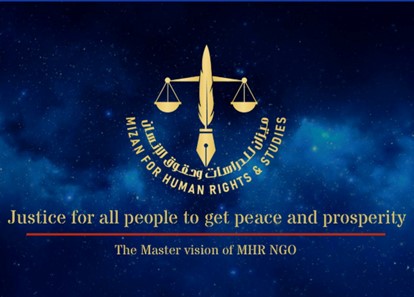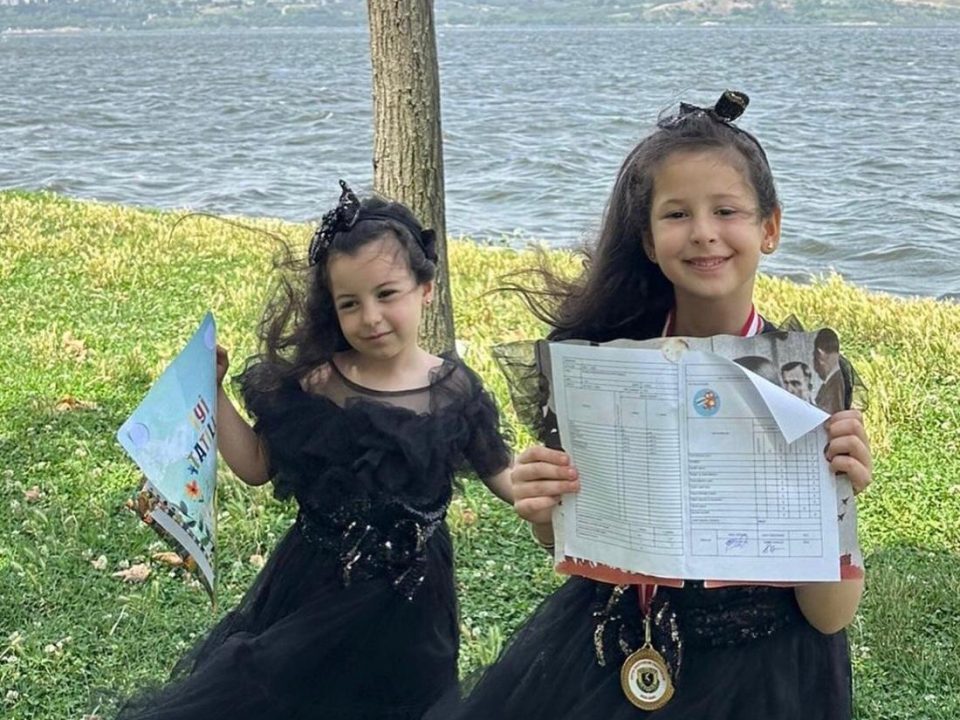On the Submission of a Communication and Request to Initiate an Investigation to the Office of the Prosecutor. Afghan Fighters’ Violations in Syria Fall Within the Jurisdiction of the International Criminal Court. The Hague (November 20, 21, 22, 2024) – Press Release
Pursuant to Paragraph (2) of Article (15) and Paragraph (C) of Article (13) of the Rome Statute, the Office of the Prosecutor of the International Criminal Court (ICC) received a communication from the Mizan Organization for Legal Studies and Human Rights regarding violations committed by Afghan fighters in Syria that potentially constitute grave international crimes.
In its communication submitted on November 19, 2024, and during its meeting with the Office of the Prosecutor on November 20, 2024, the Mizan Organization relied on a bundle of facts and legal grounds to demonstrate the fulfillment of substantive criteria and prerequisites for the Court’s exercise of jurisdiction, in accordance with Articles (5 – 7 – 8 – 11 – 12 – 18 – 25 – 30 – 31) of the Rome Statute.
Considering Afghanistan’s ratification of the Rome Statute on February 10, 2003, and its status as a State Party since the Statute entered into force on May 1, 2003, and aiming to invite the Prosecutor to examine the facts and legal arguments included in the communication and to initiate an investigation under Articles (53 – 54) of the Statute, the Mizan Organization presented the background of the arrival of Afghan nationals to Syria, their establishment of the Fatemiyoun Brigade, and their collaboration with the Iranian Revolutionary Guard Corps (IRGC), Hezbollah, and Assad regime forces in brutal actions targeting opposition groups and civilians.
The communication referenced investigations and reports issued by UN bodies, international organizations, and Syrian entities on the involvement of pro-Iranian foreign Shiite militias in systematic and widespread practices that likely constitute war crimes, genocide, and crimes against humanity.
The Mizan Organization for Legal Studies and Human Rights called on the Office of the Prosecutor to summon witnesses under measures that respect their privacy and guarantee their protection. It explained that it had collected testimonies from residents of rural areas in Deir ez-Zor, Aleppo, Damascus, and Daraa regarding the involvement of Afghan fighters in Syria in acts of arbitrary detention, enforced disappearance, torture, extrajudicial killing, looting of property, seizure of homes and lands, besieging towns, destroying vital infrastructure, forced displacement of families, including women and children, and hostile military actions employing internationally prohibited weapons. These acts violate the principles of international humanitarian law, including distinction, proportionality, and precaution.
While these grave international crimes continue to be committed by the same perpetrators, the victims—families, children, women, and the elderly—are still awaiting the progress of investigations and trials to prevent impunity, ensure justice, and guarantee non-recurrence, which aligns with the interests of justice, the founding purpose of the ICC, and the scope of its jurisdiction.
The Prosecutor’s examination of the communication and initiation of a preliminary investigation into the raised cases will ultimately provide the Pre-Trial Chamber with details on the alleged crimes, including lists of witnesses, victims, and accused individuals, as well as other information about the incidents. Much of this information is already available from UN investigative bodies, international human rights organizations, Syrian organizations, State Parties to the Court, and local witnesses.
The communication explained that there are reasonable grounds to believe the incidents in question fall within the subject-matter jurisdiction of the ICC as defined in Paragraphs (B – C) of Article (5) of the Rome Statute, and they amount to crimes against humanity, committed knowingly as part of a widespread or systematic attack directed against a civilian population, including intentional killing, extermination, forcible transfer of population, persecution, apartheid, and enforced disappearance, as defined in Article (7).
Similarly, these acts constitute grave breaches of the Geneva Conventions and amount to war crimes, committed as part of a plan, policy, or large-scale operation directed against protected persons and property. as defined in Article (8). They include intentional killing, torture and inhumane treatment, causing great suffering or serious injury to body or health, widespread destruction and appropriation of property, unlawful deportation or transfer, unlawful confinement, violence against life, attacks on personal dignity, intentionally directing attacks against civilians, religious, educational, medical, or historical sites, pillaging towns and territories, recruiting children, and displacing populations.
The violations outlined in the communication meet the material and mental elements of crimes, including intent and knowledge. The acts and consequences confirm that they were carried out as part of widespread or systematic policies against civilian populations, establishing individual criminal responsibility in accordance with the ICC’s Elements of Crimes, Articles (9 – 30 – 22) of the Rome Statute, and principles of international criminal law.
The incidents occurred between 2012 and 2024, falling after the general entry into force of the Rome Statute and Afghanistan’s accession as a State Party, thereby meeting the temporal jurisdiction of the ICC under Article (11).
The individuals suspected of involvement in the alleged crimes are nationals of a State Party to the Rome Statute. Thus, the prerequisites for the exercise of jurisdiction are fulfilled under Article (12) of the Statute.
The Court can exercise its jurisdiction if the Prosecutor initiates an investigation on their own initiative based on information regarding crimes within the Court’s jurisdiction. The Prosecutor may also seek information from States, UN bodies, or intergovernmental or non-governmental organizations, as provided in Articles (15 and 13) of the Statute.
Based on the above, and in accordance with the rules of admissibility, the other provisions of the Statute, the Elements of Crimes, and the Rules of Procedure and Evidence, and in the interest of justice and victims’ rights, the Mizan Organization for Legal Studies and Human Rights calls on the Prosecutor to:
- Examine the information and legal arguments presented in the communication and open a preliminary investigation into the incidents raised.
- Seek additional information from the International, Impartial, and Independent Mechanism (IIIM) on Syria, the Office of the UN High Commissioner for Human Rights, the Independent International Commission of Inquiry on Syria, and relevant international and Syrian human rights organizations.
- Hear witnesses and victims, ensuring the necessary measures to protect their privacy, guarantee their protection, and provide redress.
- Collect and analyze evidence to identify individuals most responsible for the crimes and ensure accountability to prevent impunity.
- Request authorization from the Pre-Trial Chamber to initiate a full investigation in accordance with procedural and evidentiary rules.
Finally, and with utmost importance, the Mizan Organization calls on experts and specialists from relevant Syrian and international organizations to form a joint team to follow up on the issues raised with the Prosecutor’s Office, support the communication with additional evidence, and launch a general advocacy campaign.




